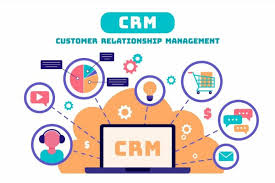
Excel as a CRM Powerhouse


Excel as a CRM Powerhouse: Revolutionizing Customer Relationship Management
Customer Relationship Management (CRM) is the cornerstone of success for businesses striving to build strong and lasting relationships with their customers. While there are dedicated CRM software solutions available, Excel, with its versatility and familiarity, can serve as a powerful tool for managing customer data and interactions. In this article, we'll explore how businesses can leverage Excel as a CRM system to organize customer information, track interactions, and enhance customer engagement.
The Importance of CRM:
Effective CRM is essential for businesses looking to gain insights into customer preferences, anticipate needs, and deliver personalized experiences. By centralizing customer data and interactions, businesses can improve communication, streamline sales processes, and foster customer loyalty.
Leveraging Excel for CRM:
Excel provides businesses with a flexible and customizable platform for managing customer relationships. Here's how Excel can be used as a CRM system:
Customer Database: Excel's spreadsheet format makes it easy to create and maintain a customer database, with columns for customer names, contact information, purchase history, and other relevant data points. Users can customize the database structure to meet their specific business needs.
Contact Management: Excel enables businesses to track customer interactions, including emails, phone calls, meetings, and follow-up activities. By recording details of each interaction in Excel, businesses can ensure that communication with customers is timely, relevant, and personalized.
Lead Tracking: Excel can be used to track leads and prospects through the sales pipeline, with columns for lead sources, lead stages, conversion rates, and sales outcomes. Businesses can use Excel formulas and conditional formatting to prioritize leads and identify opportunities for follow-up.
Task Management: Excel's grid layout is ideal for managing tasks and to-do lists related to customer interactions. Businesses can create task lists in Excel, with columns for task descriptions, due dates, assigned owners, and completion status, ensuring that no customer interaction falls through the cracks.
Advanced Features for Excel-Based CRM:
Excel offers advanced features and functionalities to enhance CRM capabilities:
Data Validation: Implement data validation rules in Excel to ensure data accuracy and consistency in the CRM database, preventing errors and duplicates.
Filtering and Sorting: Excel's filtering and sorting capabilities allow users to quickly find and analyze customer data based on specific criteria, such as customer location, industry, or purchase history.
PivotTables and PivotCharts: Excel's PivotTables and PivotCharts enable users to analyze CRM data dynamically, summarizing customer information and visualizing trends, patterns, and insights.
Mail Merge: Integrate Excel with word processing software to perform mail merges and generate personalized communications, such as customer emails, newsletters, and marketing materials.
Best Practices for Excel-Based CRM:
To maximize the effectiveness of CRM in Excel, businesses should adhere to best practices such as:
Regular Updates: Update the CRM database in Excel regularly to reflect changes in customer information, interactions, and preferences.
Data Security: Implement security measures to protect sensitive customer data in Excel spreadsheets, such as password protection, encryption, and restricted access.
Backup and Recovery: Establish backup procedures to ensure that CRM data in Excel is backed up regularly and can be recovered in the event of data loss or corruption.
Training and Support: Provide training and support to users on how to use Excel effectively for CRM tasks, such as data entry, analysis, and reporting, and offer assistance with troubleshooting and resolving any issues or concerns.
Conclusion:
Excel's versatility and familiarity make it a valuable tool for businesses seeking to manage customer relationships effectively. By leveraging Excel as a CRM system, businesses can centralize customer data, track interactions, and improve communication, leading to enhanced customer satisfaction and loyalty. Whether you're a small business owner or a sales professional, Excel empowers you to build strong and meaningful relationships with your customers, driving success and growth in today's competitive marketplace.
